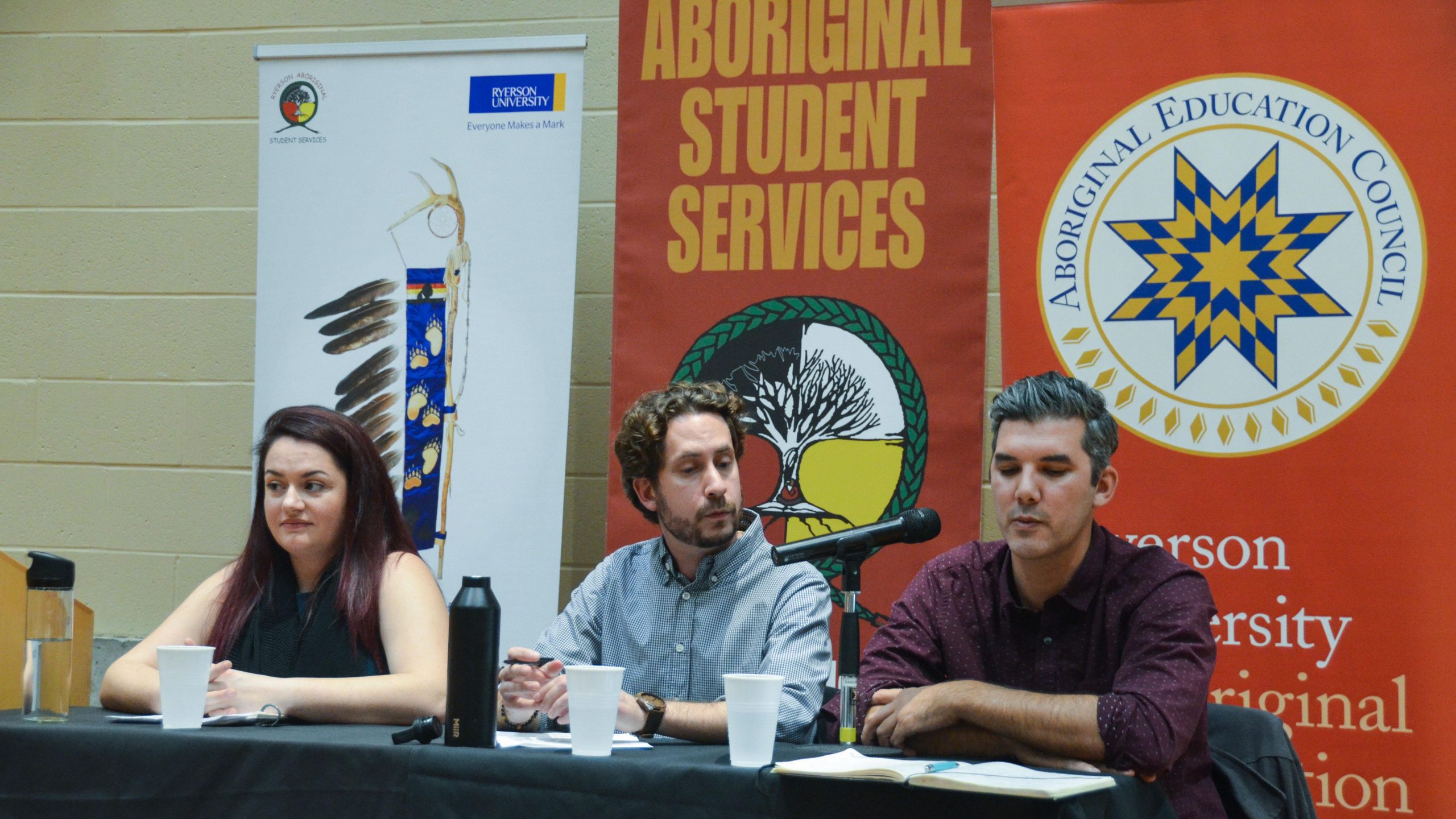By Sherina Harris
Although some progress has been made, Ryerson has a long road ahead in making changes in accordance with the Truth and Reconciliation Commission’s (TRC) recommendations.
This was the message of three panelists who spoke at “Truth and Reconciliation Movement Across Campus” held on Monday as part of Ryerson’s seventh annual Social Justice Week. The TRC had 94 calls to action. Several included calling on the efforts of post-secondary institutions to be more accessible to Indigenous people and to further understanding of reconciliation.
Hayden King, who is Potawatomi and Ojibwe from Beausoleil First Nation, said Ryerson has a “tremendous problem of representation.”
He counted just five Indigenous faculty members, four of whom are tenured. “Spread across the university, you average that, that’s one per faculty. That’s definitely not good enough.”
King is the Director of Ryerson’s Centre for Indigenous Governance. He also works as an advisor on Indigenous education in the Faculty of Arts. He said Ryerson is “quite behind” on Indigenous education.
He noted that although Ryerson has successfully integrated Indigenous content into certain departments, the courses are often introductory. “If students want to learn anything about Indigenous knowledge, Indigenous perspectives on economics, or history, or geography, they’re not gonna get it from an introductory course.”
Sarah Dennis is a social work student at Ryerson who is Anishinabe. Through her involvement in Indigenous Students Rising, she helped create the list of demands posted to the Ryerson Students’ Union Facebook page as part of the “Colonialism 150” campaign. Some of the demands included removing the statue of Egerton Ryerson from Gould Street, creating mandatory Indigenous content in programs and changing the university’s name.
In response to the Facebook post, “There was countless acts of racism,” Dennis said. “It was really disheartening and discouraging to see the reality of people’s attitudes within our student body, and it was even more discouraging the way that things were set up between the university and the student union, that nobody could really hold anybody accountable.”
Because there didn’t seem to be consequences for the racist comments, “It was really frustrating to see that our university was not set up to take care of us [Indigenous students] in the way that we needed at that time,” Dennis said.
Despite the university’s shortcomings, King acknowledged the work that has been done at Ryerson so far with regards to reconciliation.
“Ryerson has tremendous potential—I think that there are very critical, sharp students here to work with … Institutional capacity exists to push things forward,” he said.
He also highlighted the need to hold Ryerson’s administration accountable to focusing on material, not symbolic, representation. “We need to have those conversations as a broad community but also as an Indigenous community,” he said.
Ryerson’s Learning and Teaching Office is working with the Aboriginal Education Council and Ryerson Aboriginal Student Services to create and implement initiatives in accordance with the TRC.
Curtis Maloley, the office’s Educational Developer, said the first step in responding to the TRC is to work with Indigenous faculty, staff and students on campus to develop strategies that work in the community.
“As many others have said before me, reconciliation is the work of settlers and non-Indigenous Canadians.”
He said this means “seeking guidance, asking for advice, sharing ideas and receiving feedback and listening carefully to the kinds of experiences…that Indigenous faculty, staff and students on campus are articulating.”










Leave a Reply